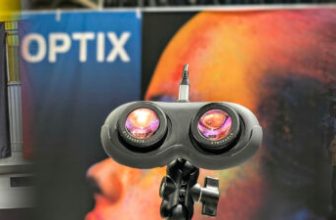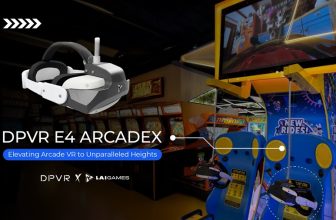
VideoLAN is currently developing a virtual reality version of the VLC Media Player for Vision Pro and is open to extending the same support to Meta Quest as well.
Jean-Baptiste Kempf, the president of VLC, mentioned that VideoLAN is currently developing a Vision Pro edition of their media player. While speaking with Lowpass, Kempf stated that they have already managed to run VLC on the Vision Pro.
It is unclear when the application will be released. VLC seems to be in no hurry, as the potential user base is still very small. “I’m not sure if there is a use case yet,” says Kempf.
The president of VLC also mentions his willingness to develop a version for Meta Quest, although he notes the existence of numerous quality players for the platform.
Vision Pro launched in the US in February, and Apple is estimated to have sold less than half a million of units so far. Quest headsets have sold more than 20 million units, so the user base is much larger.
VLC remains highly popular.
According to Lowpass, VLC, which originated as a student project 23 years ago, has recently surpassed five billion downloads. It maintained significant popularity in 2019 with three billion downloads, and the Android and iOS versions alone have been installed over 300 million times.
VLC is currently working on the next major update, version 4.0, as well as a web version of VLC that may eliminate the need for downloads.
The VLC media player is famous for its extensive codec support, allowing it to play various video file formats. In the virtual reality (VR) realm, there are several similar video player applications such as Skybox VR, Pigasus VR, and 4XVR, with the latter being the only free option. Alternatively, you can utilize Virtual Desktop to stream your computer’s desktop to the VR headset and employ VLC in the VR environment.
Why VR Media Consumption?
While the user base might be a concern, the potential of VR media consumption is undeniable. Imagine watching a movie or a concert not on a flat screen but completely surrounded by the sights and sounds. VR media players like VLC have the potential to revolutionize how we experience entertainment.
Here are some exciting possibilities:
- Immersive Entertainment: Imagine watching a nature documentary and feeling like you’re actually standing on the African savanna, surrounded by wildlife. VR can transport viewers to new worlds and create truly unforgettable experiences.
- Virtual Concerts: Front-row seats are a thing of the past in VR. You can be right next to your favorite artist on stage, experiencing the concert with unparalleled intimacy.
- Educational Explorations: VR media players can be powerful educational tools. Imagine exploring the human body from the inside or taking a virtual tour of historical landmarks. The possibilities for interactive learning are vast.
The Quest for a Meta Quest Version
While the Vision Pro app is confirmed, the big question for many VR enthusiasts is: will there be a VLC app for Meta Quest? The answer, as of now, is a hopeful maybe.
Kempf expressed openness to developing a version for the Quest, acknowledging the platform’s significantly larger user base. However, competition is a factor. The Quest already boasts a selection of well-established VR media players. VLC will need to offer unique features or a superior user experience to carve out a niche in this crowded space.
Here are some factors that could influence a Quest port:
- User Demand: If there’s a strong user demand for a VLC app on Quest, VideoLAN might be more inclined to prioritize development.
- Technical Challenges: Porting an app from one VR platform to another requires technical expertise. The differences in hardware and software between Vision Pro and Quest could pose development hurdles.
- Open Source Community: VLC’s open-source nature could play a role. The developer community might contribute to porting the app to the Quest, especially if there’s enough interest.
The Future of VR Media Consumption
Regardless of whether VLC lands on the Quest or not, their foray into VR signifies a growing interest in VR media consumption. As VR technology continues to mature and become more affordable, we can expect to see more media players and innovative ways to experience content.
Here are some potential future trends:
- Social VR Media Viewing: Imagine watching a movie with friends in a virtual environment, interacting and sharing the experience in real-time.
- Interactive VR Media: VR media could become interactive, allowing viewers to engage with the content in new ways, like exploring different angles of a scene or even influencing the story’s direction.
- Specialized VR Media Formats: New VR media formats could emerge, optimized for the immersive experience, offering even more depth and realism.
Conclusion
VLC’s exploration of VR media playback is exciting. Vision Pro and a potential Quest app open doors to a new way of experiencing media. While challenges exist, VLC’s entry is a turning point, potentially sparking innovation in VR media formats, social VR experiences, and educational uses. This paves the way for a more immersive future of media consumption.







